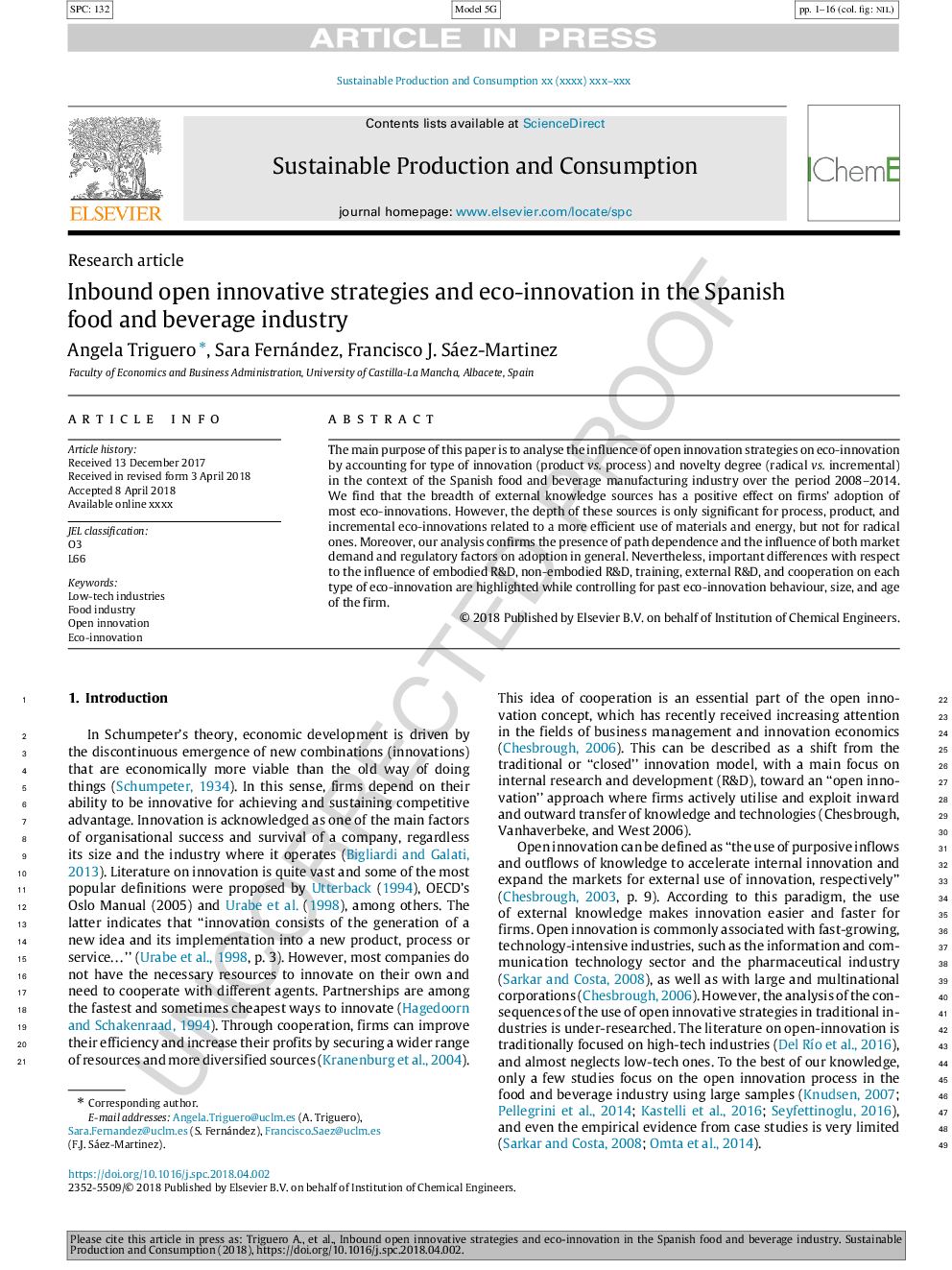| Article ID | Journal | Published Year | Pages | File Type |
|---|---|---|---|---|
| 7107362 | Sustainable Production and Consumption | 2018 | 16 Pages |
Abstract
The main purpose of this paper is to analyse the influence of open innovation strategies on eco-innovation by accounting for type of innovation (product vs. process) and novelty degree (radical vs. incremental) in the context of the Spanish food and beverage manufacturing industry over the period 2008-2014. We find that the breadth of external knowledge sources has a positive effect on firms' adoption of most eco-innovations. However, the depth of these sources is only significant for process, product, and incremental eco-innovations related to a more efficient use of materials and energy, but not for radical ones. Moreover, our analysis confirms the presence of path dependence and the influence of both market demand and regulatory factors on adoption in general. Nevertheless, important differences with respect to the influence of embodied R&D, non-embodied R&D, training, external R&D, and cooperation on each type of eco-innovation are highlighted while controlling for past eco-innovation behaviour, size, and age of the firm.
Related Topics
Physical Sciences and Engineering
Chemical Engineering
Process Chemistry and Technology
Authors
Angela Triguero, Sara Fernández, Francisco J. Sáez-Martinez,
